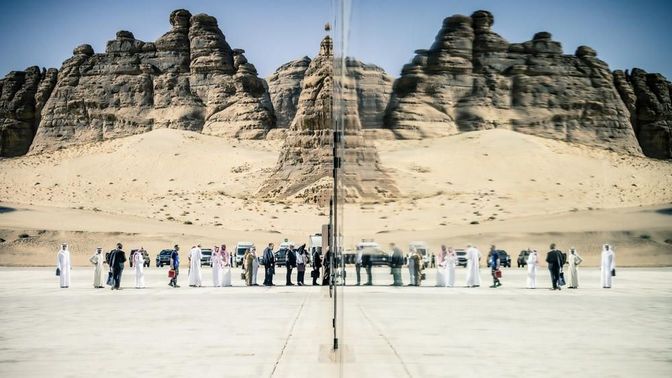

Searching for a Common Vision
A Readout From the Munich Security Conference 2023
This year’s Munich Security Conference (MSC) took place amid intensifying efforts by autocratic states to revise the international order: from Russia’s ongoing war against Ukraine to China’s tacit support thereof and own attempts to assert a sphere of influence in East Asia. Meanwhile, many states in the “Global South” have expressed their dissatisfaction with the status quo and have refused to speak up against Russia’s fundamental violation of the UN Charter.
In Munich, leaders of liberal democracies therefore sought to push back against this revisionism, reaffirm their commitment to Ukraine’s victory, and discuss how to re-envision the international order to create wider ownership. This special Munich Security Brief summarizes the conference’s key takeaways.
Content
The MSC 2023 was the first under the chairmanship of Christoph Heusgen and marked the forceful return of post-pandemic diplomacy. Reflecting the Zeitenwende brought about by the Russian war in Ukraine, the conference hosted a record number of bilateral and multilateral meetings and the largest US Congressional delegation ever. The greatest number of representatives from the "Global South", gender parity on panels, and the launch of a new Women Parliamentarians Program also made this year’s conference more diverse than its predecessors. Russian and Iranian officials were absent, however, as the MSC did not see any chance for a constructive dialogue with these regimes and instead invited prominent voices from Russian and Iranian civil society.
Following on from Ukrainian President Volodymyr Zelenskyy’s rousing speech, leaders from liberal democracies around the world from German Chancellor Olaf Scholz, to French President Emmanuel Macron, and US Vice President Kamala D. Harris expressed their unwavering commitment to support Ukraine for “as long as it takes” and to hold the perpetrators of war crimes accountable. The conference also featured the manifold other, and often inter-related, global and regional security challenges, including stability in the Indo-Pacific and the Sahel, climate and food crises, and risks of nuclear proliferation. In doing so, the MSC continued its mission to broaden debates and provide a platform for exchange on the most pressing international security issues.
States that do not currently align either with liberal democracies or autocratic revisionists will be crucial in shaping the future international order. Several prominent sessions were therefore dedicated to the "Global South." While the discernible effort to provide a platform to voices that had hitherto received less attention resonated positively, this can only be the first step toward developing a common vision for the international order that also attracts ownership in the diverse countries of the “Global South.”
Based on the discussions in Munich, the Munich Security Brief deduces four points that should inform this new vision: 1) a Ukraine that is whole, free, and at peace as the foundation for peace in Europe and the integrity of the UN Charter; 2) sustained dialogue with the diverse countries of the "Global South" and cooperation on equal terms; 3) a geopolitical Europe that assumes proportionate responsibility for its security and that of its neighborhood; and 4) involving the publics in shaping this new vision.
About Munich Security Briefs
With its Munich Security Briefs, the MSC aims at contributing to ongoing debates on a particular issue within the broad field of international security. A much more concise format than the Munich Security Report, the briefs are meant to provide an overview of an issue or a readout of a particular MSC event as well as a succinct analysis of its policy implications and strategic consequences. They generally express the opinion of their author(s) rather than any position of the Munich Security Conference.






